Artist around the world makes use of different Adobe applications or product to create virtually everything, ranging from icons you see on a website to the movies you watch in a theater.
VERY IMPORTANT: This article is very long, so I would suggest you >>CLICK HERE<< to go and watch the full and shorter and more explanatory video about Top 50 Adobe Applications You Might Not Know And Their Uses.
The very popular adobe application we all know or use often is the Adobe Photoshop, but can you name the rest of the adobe products shown here? To make it more confusing, in each category Adobe has many products which may look like they perform the same task, thus bringing up questions like
- What is the
difference between Adobe Photoshop and Adobe Illustrator?
- What are
the difference between Adobe Photoshop and Adobe Lightroom?
- What is the
difference between Adobe After Effects and Adobe Premiere Pro?
Adobe makes so many software that is can be quite difficult for even a professional to understand what each of those applications are used for, so in this article I will be highlighting to you an overview of top 50 Adobe Products as I couldn’t find similar guide anywhere, not even in Adobe’s website.
Below are the top 50 Adobe Application
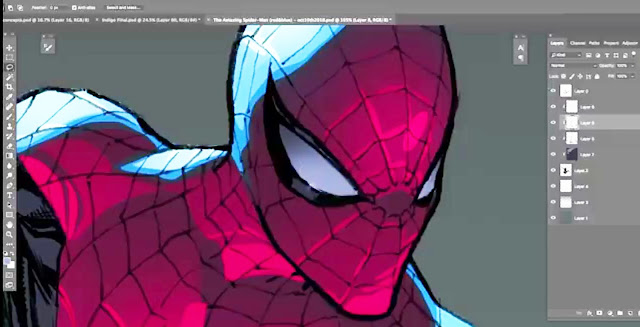 |
| Adobe Photoshop Interface |
1) Adobe Photoshop: This is the software used to manipulate photos professionally. But that is pretty self-explanatory as it is so famous that the word “Photoshop” is now considered a verb in the English Language. Photoshop is a very popular tool which is great for making posters, advertisements, wallpapers and digital artwork.
Artist uses it to draw, sketch and even paint digitally. Photographers
use it to enhance and retouch their photos.
Meanwhile, youtubers use it to make cringy clickbait
thumbnails.
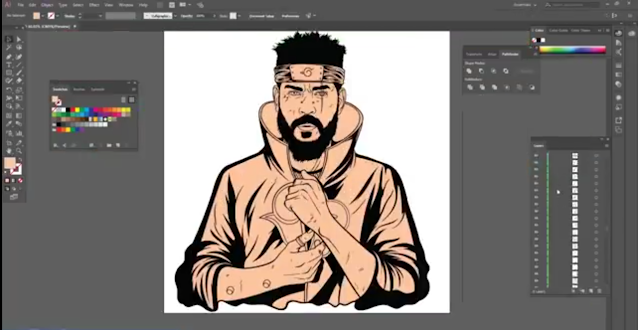 |
| Adobe Illustrator Interface |
Photoshop works with raster-art which means that all the
photos are stored as Pixels. On the other hand, Illustrator works with
vector-art which means that the artwork is stored as mathematical equations.
Raster art will get pixilated if you enlarge it beyond its resolution;
however the vector-art can infinitely enlarged without losing any quality. The disadvantage of vector-art is that it
cannot be used for anything detailed like photograph, hence we have two
separate tools or each purpose.
Illustrator is great for making icons, logos, posters and
graphics which can then be used in other projects.
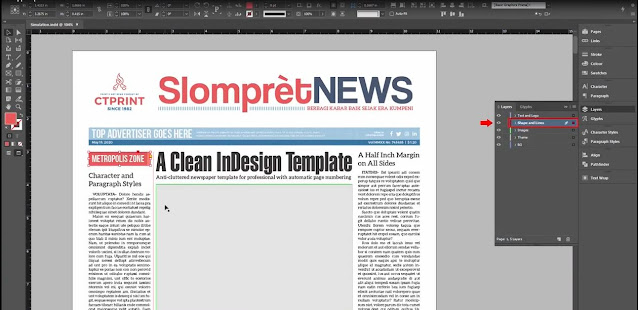 |
| Adobe Indesign Interface |
3) Adobe InDesign: This is a publishing software that excels at projects which require multi-page layouts like magazines, newspapers, presentations and books.
It is good for arranging large amount of text and photos into
nice layouts which can then be directly handed off for printing. Making magazine is a tough job which requires
collaboration of several professionals from various fields including editors,
writers, photographers and designers. So to help them collaborate, there is
Adobe InCopy.
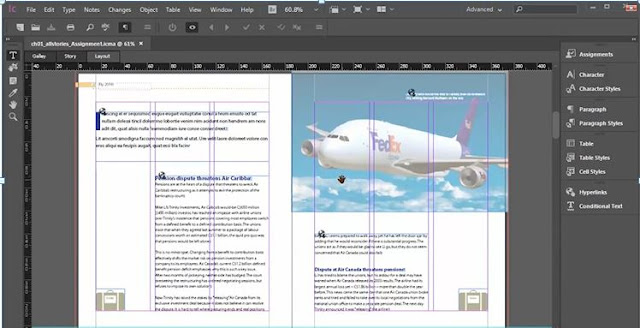 |
| Adobe InCopy Interface |
4) Adobe InCopy: This
a text editor that allows writers to write the text content while designers are
simultaneously working on the graphics of the same document in InDesign.
This significantly improves the efficiency as several people
can work on the same project at the same time thus making it possible for
magazines to maintain their rapid schedules.
 |
| Adobe Lightroom Interface |
Professional photographers use it in their workflow as a
photo management system for efficiently cataloging, organizing and post
processing thousands of photos.
 |
| Adobe Bridge Interface |
6) Adobe Bridge: This
is an easy to use visual media manager that allows you to organize, browse and
view your media files.
Here is the main difference between Adobe Lightroom and Adobe
Bridge, though both of them are used to organize media files. Adobe Bridge can
handle more types of files and it is more likely a universal file manager which
works together with all other Adobe Software whereas Adobe Lightroom is
specifically designed to suite photographer’s work flow.
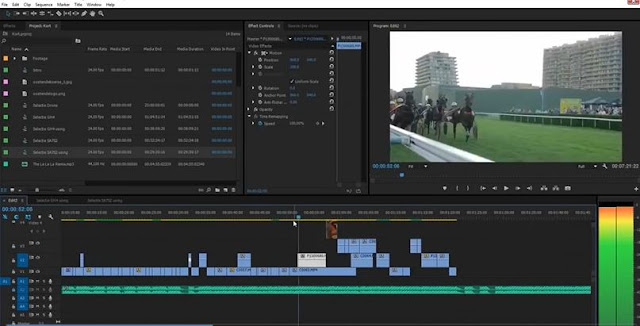 |
| Adobe Premiere-Pro Interface |
7) Adobe Premiere-Pro:
This is a professional video editing tool used for making everything from
Youtube Videos and blockbuster videos. You can cut, edit and trim large number
of clips and then sequentially arrange them on a layer timeline where you can
add various effects to your video.
You can also add text, transition, audio effects and much
more.
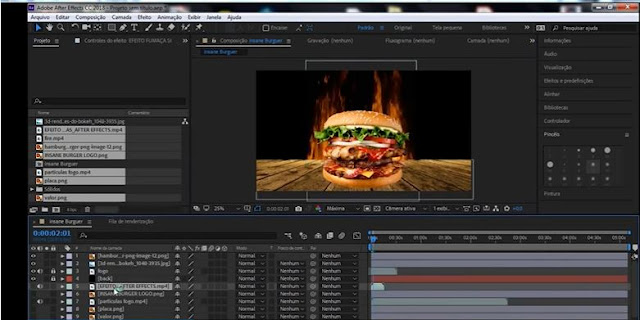 |
| Adobe After effects Interface |
8) Adobe After effects:
Talking about effects, Adobe After-effects is a powerful software for creating
all kinds of visual effects, it is basically the photoshop for videos.
It is commonly used for creating animations, motion graphics,
and other cinematic effects.
The main difference between Adobe After-effects and Adobe
Premiere-Pro, in Adobe After-effects a user can only work with one video at a
time and as it not designed for editing final sequence of the video. After
creating the visual effects, you need to export it to Adobe Premiere-Pro to
make the final video.
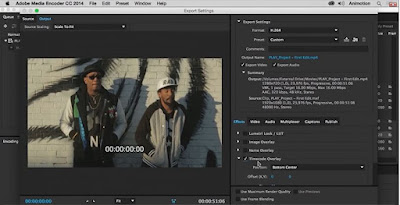 |
| Adobe Media Encoder Interface |
9) Adobe Media Encoder:
This is a specialized software for rendering the
Video which you created in Adobe Premiere-pro or Adobe
After-effects. Typically the original file size could be huge so it needs to be
compressed and converted into a file format and resolution which can be
smoothly played in various devices which may not have powerful processors or
tons of RAM.
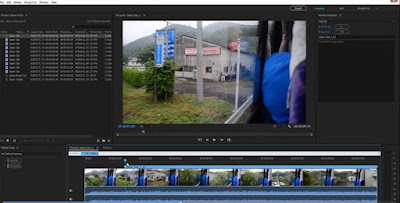 |
| Adobe Prelude Interface |
10) Adobe Prelude:
This is video editing tool dedicated for rough-cutting and organizing a large
amount of videos.
A movie might have several hours of footage shot with
different cameras, so prelude is used to chop off unnecessary parts,
synchronize various shots and tag the content before it is sent to the main
editing team.
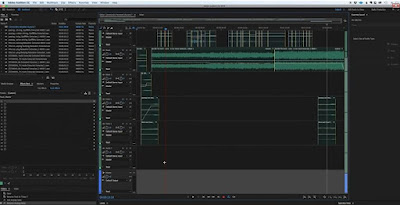 |
| Adobe Audition Interface |
11) Adobe Audition:
It is a dedicated audio editing software designed to record, edit and mix
audio.
 |
| Adobe Flash-Professional Interface |
12) Adobe
Flash-Professional: This is a software used to make simple 2D animations,
games and applications. If you have been on the internet for a while, you may
have come across some sites asking you to install Adobe Flash player to play certain games or videos. Those games
were made with flash. To make it more confusing, there is also a different
software called
 |
| Adobe Flash Builder Interface |
13) Adobe Flash
Builder: This software is also used for making games and applications,
but this one is more focused in programming than animation.
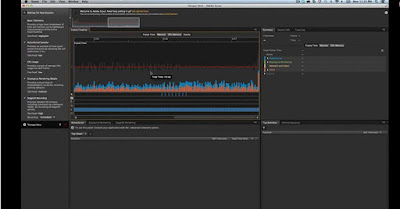 |
| Adobe Scout Interface |
14) Adobe Scout: This
software is used for analyzing the performance issues in the games made with
flash.
 |
| Adobe Animate Interface |
15) Adobe Animate:
This is used for creating interactive and media-rich apps.
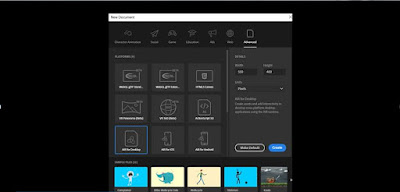 |
| Adobe Air |
16) Adobe Air: This
is a cross-platform technology that allows you to make applications and games
within animate for several operating systems including Android and IOS.
 |
| Adobe Character-animator Interface |
17) Adobe Character-animator: it is a software which makes it possible to create 2D characters without having to animate it frame-by-frame. It uses the webcam to copy your facial expressions and magically make your character imitate you. This saves a lot of time as you don’t need to go through the pain of lip-syncing your characters manually.
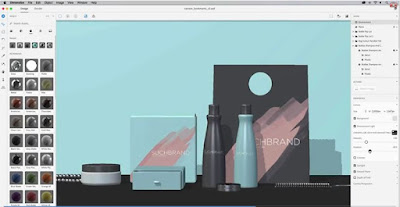 |
| Adobe Dimension Interface |
18) Adobe Dimension: This is a software that makes it easier for
graphic designers to add 3D models in a 2D image to create photorealistic
composite of both elements. This is useful in making product models for
advertisement, prototyping and package design. The professional software
typically used for 3D modeling are extremely complex and have and have a step
learning curve, so the idea of Adobe dimension is to make the basic 3D modeling
as simple as photoshop.
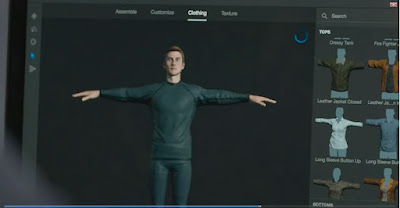 |
| Adobe Fuse |
19) Adobe Fuse:
This is another tool for making 3D models, however this one is specialized in
making human models which you can then export to photoshop or any other 3D
software. It is very simple to use even though you can create highly
customizable models by changing their physical attributes, clothes, textures,
colors etc.
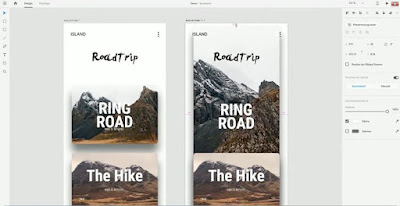 |
| Adobe XD Interface |
20) Adobe XD: This
is a user-experience and user-interface prototyping tool for designing
applications. It allows you to quickly make the mockup of your app so that
everyone can see and discuss it before developers start doing the hard work of
coding it. If you want to develop this user interface into website, there is
Adobe DreamWeaver.
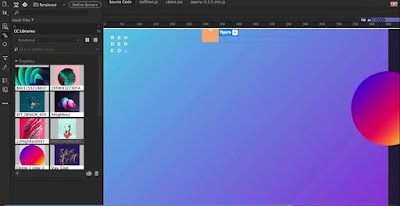 |
| Adobe DreamWeaver Interface |
21) Adobe DreamWeaver:
This is a web-designing software which allows you to visually make websites
without having to touch the code, but it also features a powerful code editor
which supports numerous programming languages, thus letting you to customize the
design however you may like it.
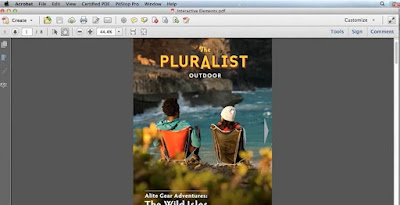 |
| Adobe Acrobat Reader Interface |
22) Adobe Acrobat
Reader: This is a standard piece of software for viewing, printing and
signing all kinds of PDF documents. But if you want to make PDF files you need
Adobe Acrobat-Pro.
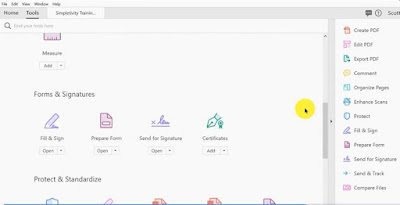 |
| Adobe Acrobat-Pro Interface |
23) Adobe Acrobat-Pro: This software is used to create, edit,
and manage PDF documents. Adobe sells all the software I mentioned till date in
a bundle called Adobe Creative-cloud.
 |
| Adobe Creative-cloud |
24) Adobe Creative-cloud: This is a subscription that costs
around $80 per month.
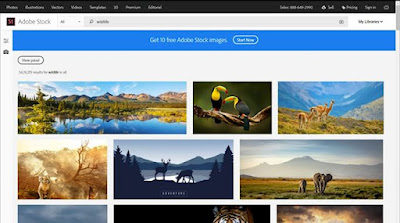 |
| Adobe Stock |
25) Adobe Stock: This is a platform where you can buy stock
photos, videos and 3D models. But, if you want good fonts, you can buy it from
Adobe Typekit.
 |
| Adobe Typekit |
26) Adobe Typekit: This a platform where users can purchase a good fonts.
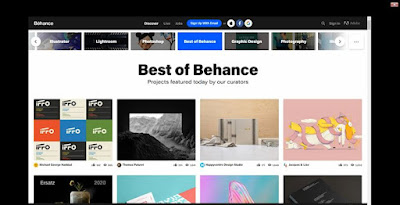 |
| Adobe Behance |
27) Adobe Behance: This is an online social media platform
where creators around the world shares their works for self-promotion. Then if
you intend to promote your work in your own website there is Adobe Portfolio.
 |
| Adobe Portfolio Interface |
28) Adobe Portfolio: This is used to make basic websites
using your photos.
 |
| Adobe Photoshop-element,Adobe Premiere-elements |
29) Adobe Photoshop-element and 30) Adobe Premiere-elements:
These are the dumbed down version of their professional counterparts.
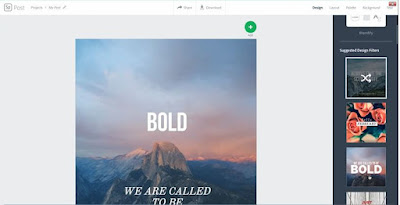 |
| Adobe Spark Interface |
31) Adobe Spark: This is a free online graphic design app that can do basic stuff like adding text to a photo or making simple videos using your photos.
 |
| Adobe ColdFusion |
32) Adobe ColdFusion: This is a programming language created
over two decades ago along with its development platform, but it is now
steadily declining in popularity. So far we have discussed about desktop
applications used for creative purposes. But if you are more into marketing,
analytics or management, there is Adobe Experience-cloud.
33) Adobe Experience-cloud: This application has it own set
of subproducts for everything ranging from social-media campaigns to managing
when to show ads on TV channels.
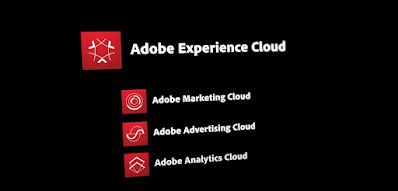 |
| Adobe Experience-cloud |
34) Adobe Marketing Cloud
35) Adobe Advertising Cloud
36) Adobe Analytics Cloud
Several of this software
we have discussed so far have their smartphone app counterparts such as
37) Adobe Photoshop-express
38) Adobe Premiere-clip
39) Adobe Illustrator-draw
40) Adobe Lightroom-for-mobile
41) Adobe Capture-pick colour using camera
42) Adobe Illustrator Grow
43) Adobe Aero-augmented reality apps
44) Adobe Scan-Scan paper notes to pdf
45) Adobe Advertising Cloud
 |
| Adobe RoboHelp Interface |
46) Adobe RoboHelp: This software is used to create and
manage large knowledge bases like the ones you find in the help page of some
websites.
 |
| Adobe Presenter |
47) Adobe Presenter: This is used to make interactive
slideshows.
 |
| Adobe Captivate |
48) Adobe Captivate: This is used to create E-learning
courses.
 |
| Abobe FrameMaker |
49) Abobe FrameMaker: This is used for writing large
technical documents
Discontinued
Adobe Applications
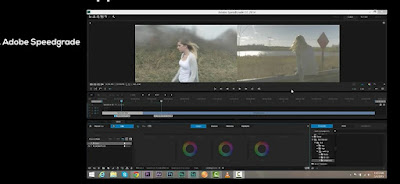 |
| Adobe Speedgrade |
50) Adobe
Speedgrade: This is a video color correction software.
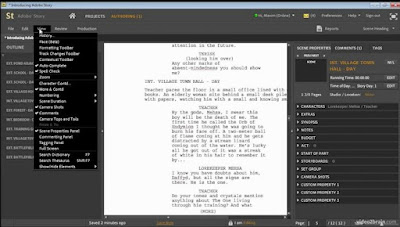 |
| Adobe Story Plus |
51) Adobe Story Plus: This is a screen-writing tool for movie scripts.
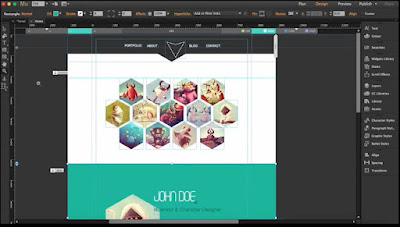 |
| Adobe Muse |
52) Adobe Muse: This is a website builder.
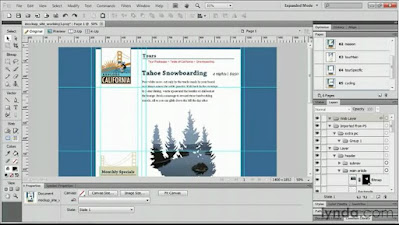 |
| Adobe FireWorks |
53) Adobe FireWorks: This is a graphics design tool for
web-designers.

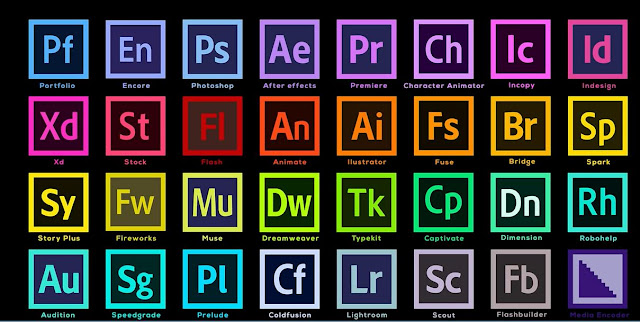

Post a Comment